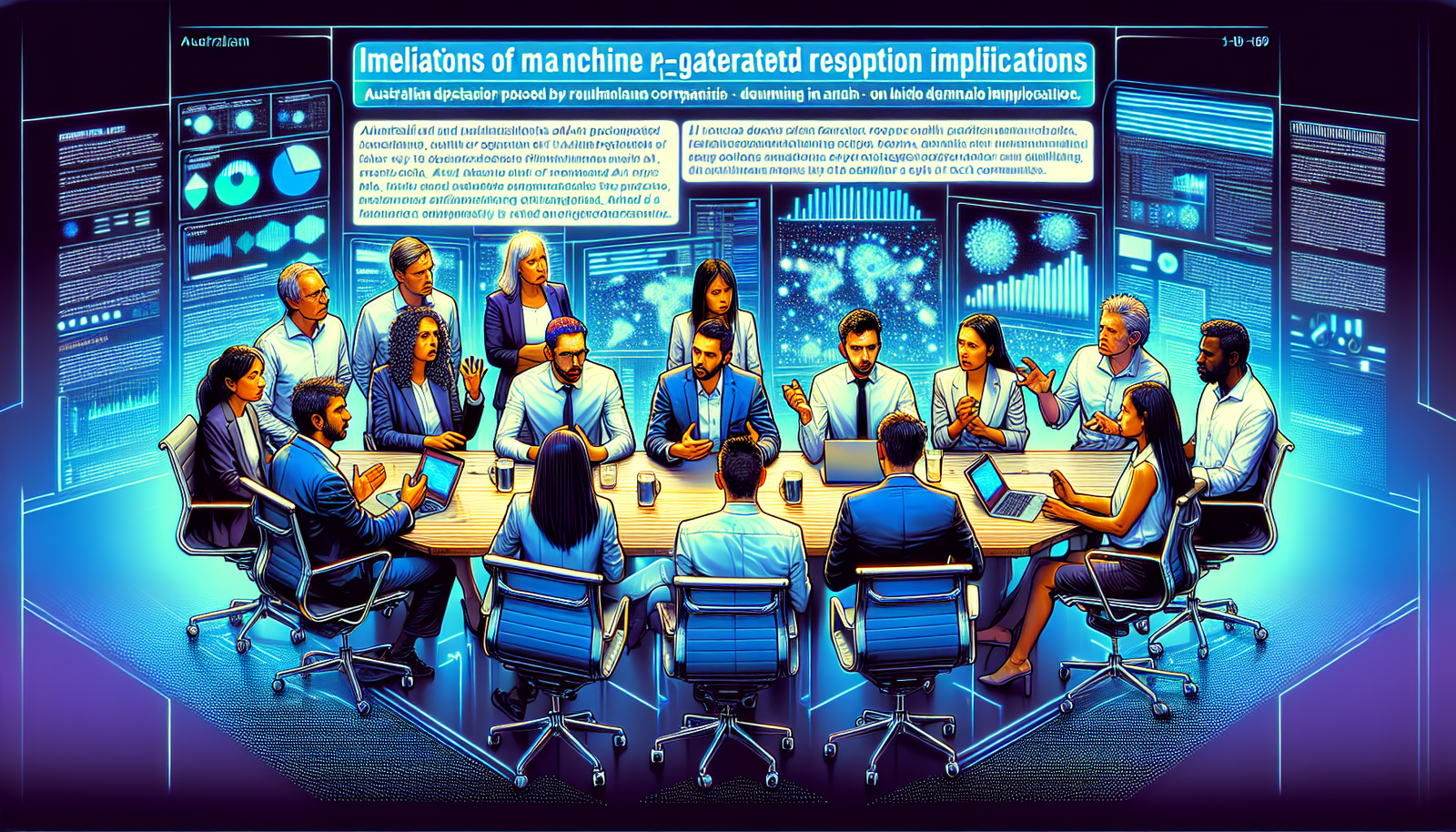The defamation risks for Google and Meta are attracting increasing attention among Australian experts. The emergence of generative AI poses unprecedented legal challenges for these tech giants. *User comments can quickly become litigable*, exposing these companies to potential lawsuits for content deemed disparaging. Recent Australian jurisprudence is redefining concepts of liability, *positioning platforms as potential publishers*. The complexity of these new dynamics will require heightened vigilance in managing AI-generated content.
Legal Risks for Google and Meta
Australian experts are warning about potential defamation risks faced by Google and Meta. The use of user comments and reviews in AI-generated responses could raise legal disputes. This particularly involves reviews of restaurants or summaries of opinions. The consequences could directly impact tech companies, exposing them further to legal repercussions.
Legal Context in Australia
In Australia, when users post a review deemed defamatory on Google or Facebook, the liability generally rests with them. However, a landmark court ruling in 2021 established that platforms hosting such defamatory comments may also be held liable. This ruling arose from Dylan Voller’s case against several media outlets concerning comments related to his treatment in a detention center.
Illustrative Legal Cases
Several cases have already emerged in Australia involving tech giants. For example, Google was ordered to pay over 700,000 Australian dollars to former deputy prime minister John Barilaro for hosting a defamatory video. Prior to that, a similar ruling forced Google to pay 40,000 dollars due to a search result mentioning a Melbourne lawyer.
Recent Initiatives by Tech Companies
Recently, Google introduced new features in its Maps application in the United States. Powered by AI Gemini, this update allows users to request recommendations for places to visit. It also compiles user reviews to offer a summary. Simultaneously, Meta has started rolling out AI-generated summaries of comments on Facebook, including those posted by news media.
Experts’ Responses
Defamation specialists, such as Michael Douglas, believe it is likely that cases will be brought before the courts as these technologies evolve. If Meta “ingests” comments to reproduce them, its liability as a publisher comes into question. This phenomenon raises concerns about the potential for these companies to invoke legal defenses, such as “innocent dissemination,” which may not suffice in the face of defamatory content.
A Necessary Reform of Laws
Professor of law at the University of Sydney, David Rolph emphasizes the need for a reform of the legal framework. Defamation laws have not adequately addressed the new challenges posed by AI. The emergence of large-scale language models demands an update to regulations to better govern this constantly evolving field.
Risk Management Strategies
Miriam Daniel, vice president of Google Maps, assured that considerable efforts are being made to remove false reviews and adhere to internal policies. The goal of AI Gemini remains to provide a balanced view based on a sufficient number of positive and negative reviews. This process aims to minimize defamation risks by consolidating relevant contributions.
Meta’s Feedback on AI
A spokesperson for Meta acknowledged that its AI, still in development, does not always return the desired responses. The company continues to implement regular updates to improve the accuracy of AI-generated responses. An awareness project is also underway to inform users about the potential inaccuracies of results.
Upcoming challenges are attracting the attention of jurisdictions and professionals. The rapid evolution of AI technologies demands a proactive response from lawmakers to better regulate this emerging field, considering the many challenges it presents.
FAQ on Defamation Risks Related to AI for Google and Meta
What are the main defamation risks for Google and Meta related to the use of AI?
The main defamation risks for these companies arise from their ability to generate responses based on user-created content, which could include defamatory comments or reviews. This can make them legally liable, as they are considered hosts of this content.
How does Australian legislation address the liability of Google and Meta for AI-generated content?
Australian legislation has strengthened the liability of digital platforms regarding defamatory content. Recent court decisions have established that not only the user posting comments can be held responsible, but also the platforms hosting this content.
What are the implications of a decision by the Australian High Court for defamation cases?
A decision by the high court indicating that platforms may be considered liable for defamatory content could lead to an increase in lawsuits against tech giants like Google and Meta, as well as a reevaluation of their content moderation policies.
Can companies defend themselves against defamation accusations related to their AI systems?
Yes, they can invoke defenses such as innocent dissemination and attempt to prove that they were unaware of the defamatory nature of the content. However, these defenses can be difficult to maintain, especially with recent developments in defamation law.
How can users protect their posts against defamatory interpretations?
Users should be cautious and carefully phrase their comments and critiques to avoid any accusations of defamation. Using factual and objective language can also help minimize risks.
What role do expert opinions in law play in understanding defamation risks?
Expert opinions from defamation lawyers are essential to clarify how laws apply to the new challenges posed by AI, particularly concerning automatically generated content on social platforms.
What measures can Google and Meta take to reduce their defamation risks?
These companies can strengthen their moderation mechanisms, improve the detection of potentially defamatory content, and provide training to their AI systems to better filter problematic reviews and comments.






